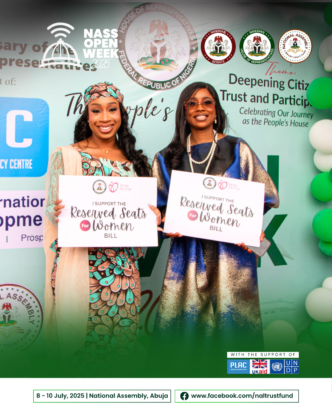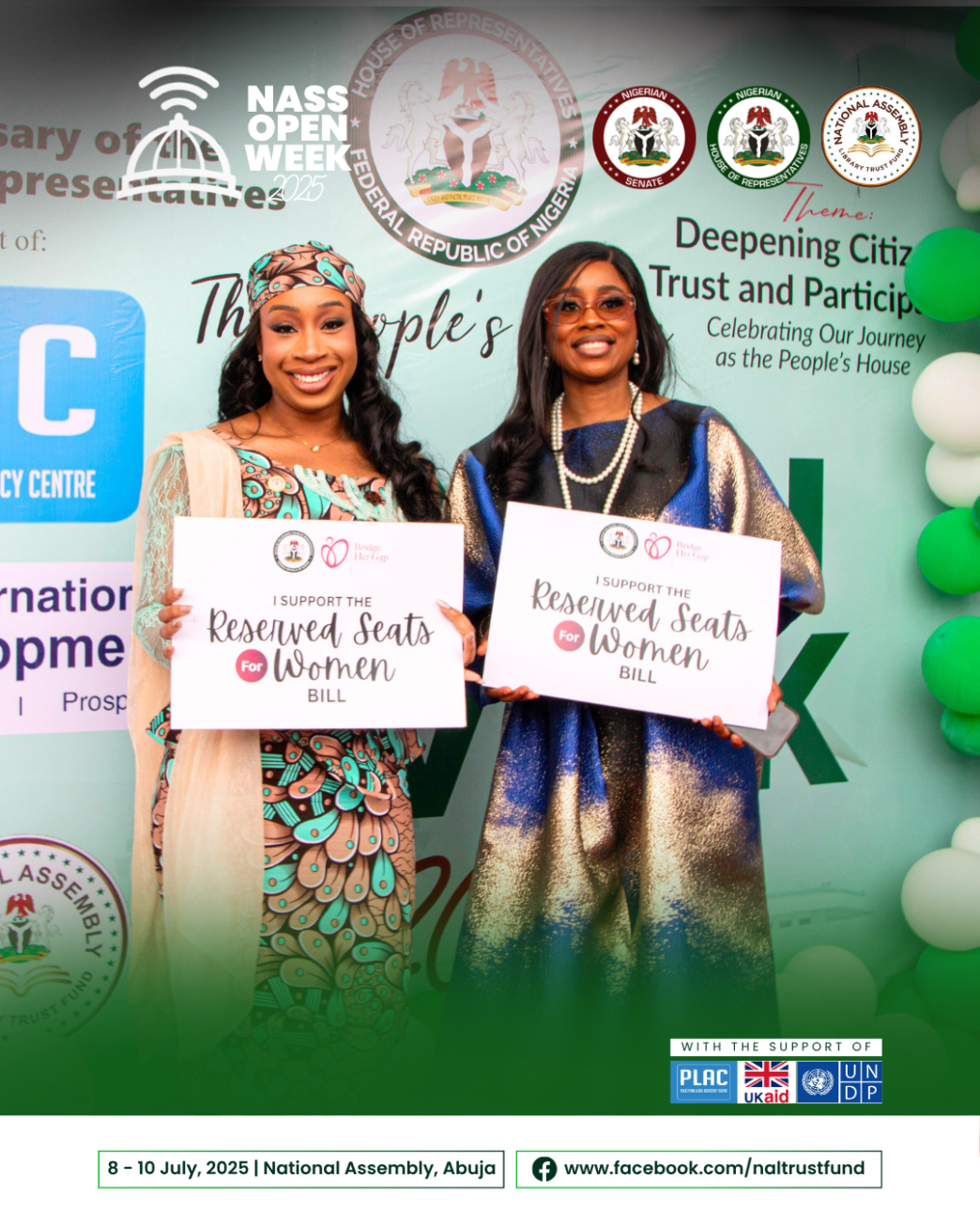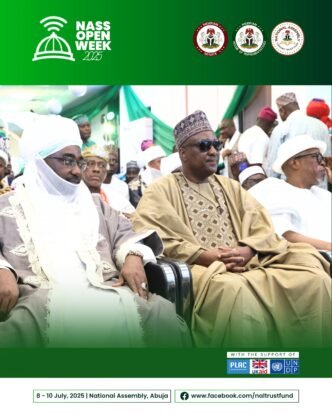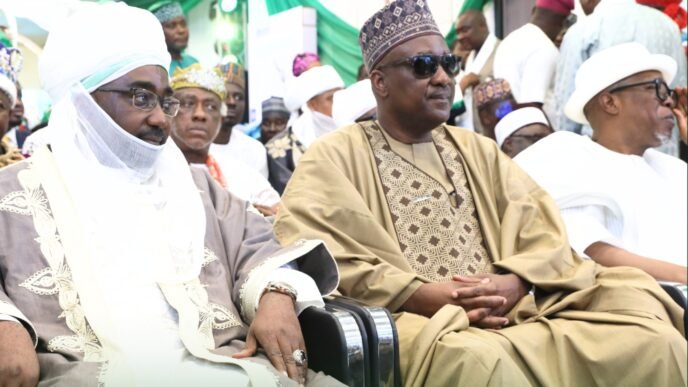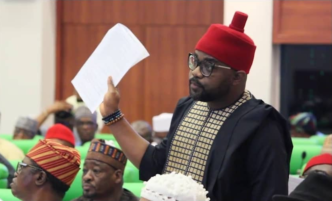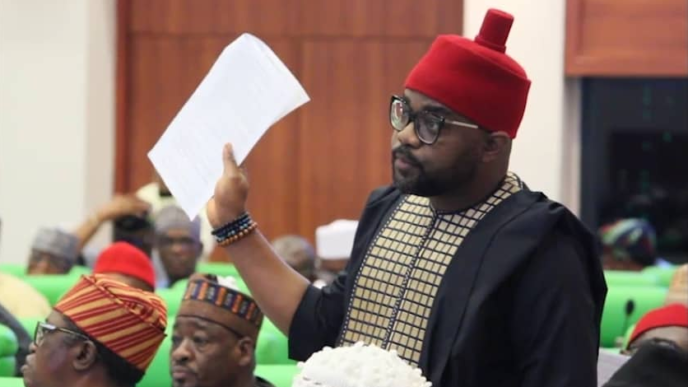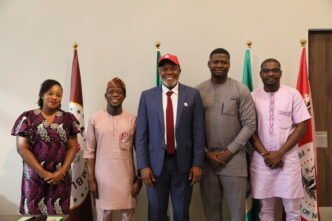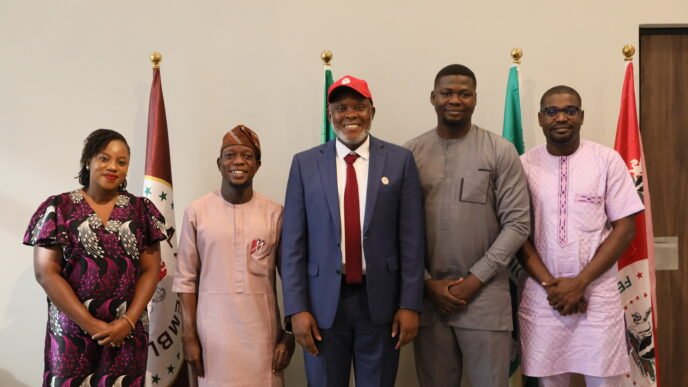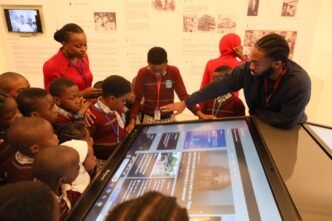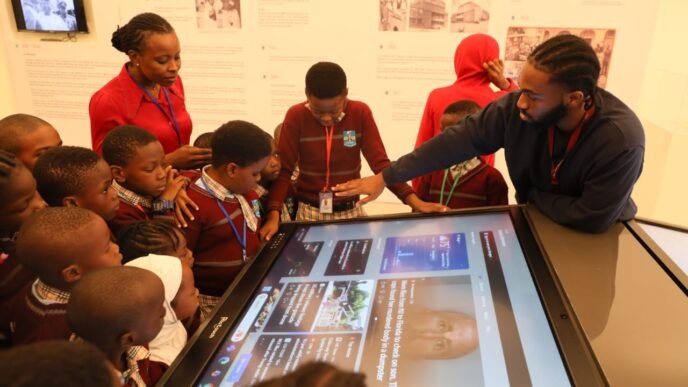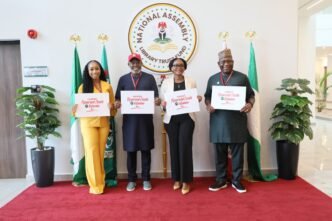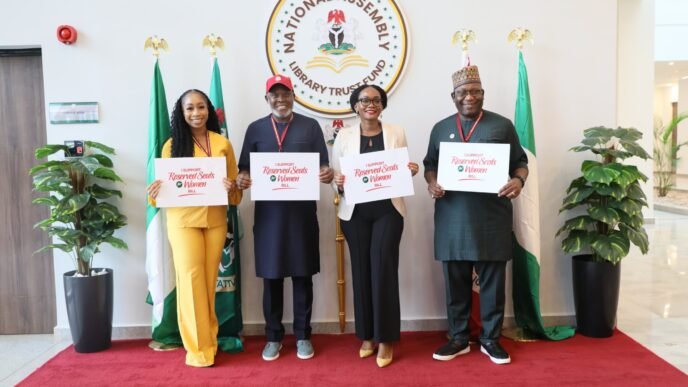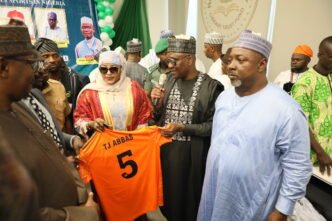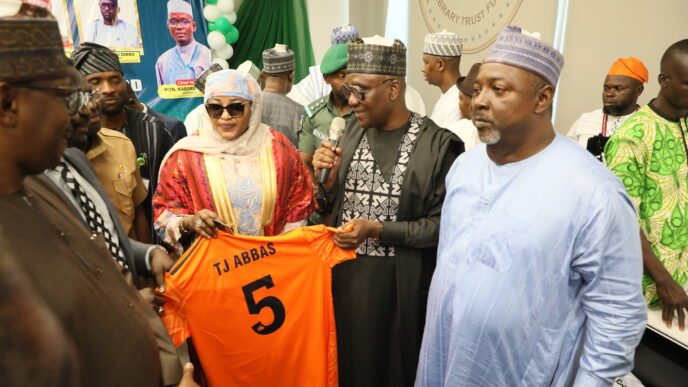The National Assembly Library was a beehive of high-level engagement on Tuesday as the House of Representatives Open Week 2025 entered its second day, featuring two landmark interactive sessions on constitutional review.
The day opened with a session dedicated to the theme, “The Special Seats Bill for Women,” drawing an influential audience that included Nigeria’s First Lady, Senator Oluremi Tinubu, CON (represented), female deputy governors, and wives of state governors. The session aimed to examine and advocate legislative pathways for enhanced female representation in elected office.
Setting the tone, Minority Leader of the House, Hon. Kingsley Chinda, delivered a welcome and context-setting speech, emphasizing the commitment of the 10th House of Reps on constitutional review that prioritizes inclusion and equity. He was followed by Mr. Clement Nwankwo, Executive Director of the Policy and Legal Advocacy Centre (PLAC), who praised the National Assembly for facilitating meaningful civic dialogue on key national issues.
Minister of Women Affairs, Hajiya Imaan Sulaiman-Ibrahim, also addressed the gathering, underscoring the urgency of correcting systemic gender imbalances in governance and urging lawmakers to “anchor Nigeria’s future on full representation.”
The interactive session on women’s representation was chaired on behalf of the Speaker, Rt. Hon. Abbas Tajudeen, by House Leader, Prof. Julius Ihonvbere. He reiterated the commitment of the 10th House to champion inclusive legislation that reflects Nigeria’s social realities.
Leading the conversation was Hon. Kafilat Adetola Ogbara, Chairperson of the House Committee on Women Affairs and Social Development, who made a strong case for the Special Seats Bill, noting that “gender parity in politics is not a privilege—it is a democratic imperative.”
Hon. Fatima Talba, Chairperson of the House Committee on Women in Parliament, and Minister Imaan both lent their voices to the cause, stressing the need to dismantle structural barriers that hinder women from full participation in the political arena.
The afternoon session shifted focus to another deeply rooted theme: the constitutional role of traditional rulers. This second dialogue session was chaired by the Speaker himself, Rt. Hon. Abbas Tajudeen GCON PhD, and featured an elite panel of monarchs from across the country.
The Emir of Zazzau opened the panel discussion with a powerful case for recognizing traditional institutions as key actors in conflict resolution, community policing, and cultural preservation. He argued that monarchs often serve as first responders to crises in rural areas, yet lack formal recognition within the national governance framework.
From Anambra, Igwe Chidubem Iweka (Eze Obosi), Chairman of the State Council of Traditional Rulers, stressed the irreplaceable role of royal fathers in community cohesion, youth mentorship, and peacebuilding, while calling for their inclusion in the constitution to support nation-building efforts.
Oba Oluforun, a prominent Lagos traditional leader, spoke of the successes of community-led initiatives anchored on royal institutions, particularly in local security. Meanwhile, King Dr. Apollos Chu of Rivers State emphasized that traditional rulers are the living bridge between the government and the populace.
As Open Week continues, expectations remain high that the conversations held at the National Assembly will translate into meaningful legislative outcomes and a constitution that truly reflects the voices and values of all Nigerians.
